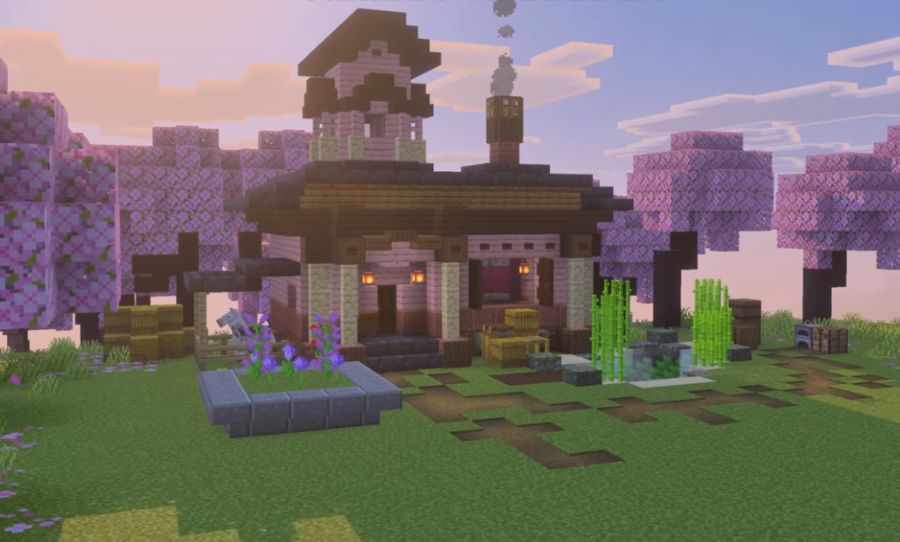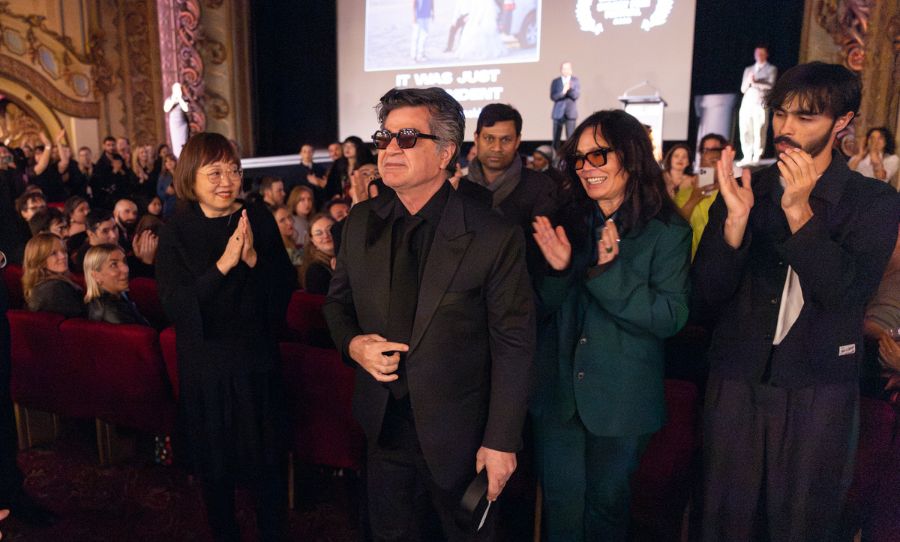Since garnering national attention in 2012, Canberra duo Peking Duk has been one of Australia’s most consistently successful acts. Masterminded by Adam Hyde and Reuben Styles, the band has a swag of hit singles under their belts, powered by a host of ingenious collaborations with vocalists as diverse as Nicole Millar, SAFIA, Al Wright, Jack River and Matt Murphy of The Wombats.
Accustomed to headlining festivals, Peking Duk, like everyone else, has had to change their plans in the past year. This doesn’t mean that they haven’t been able to capture the energy of the big stage on record. Adam Hyde dialled in from his studio in Los Angeles to show us the inner workings of the Peking Duk universe.
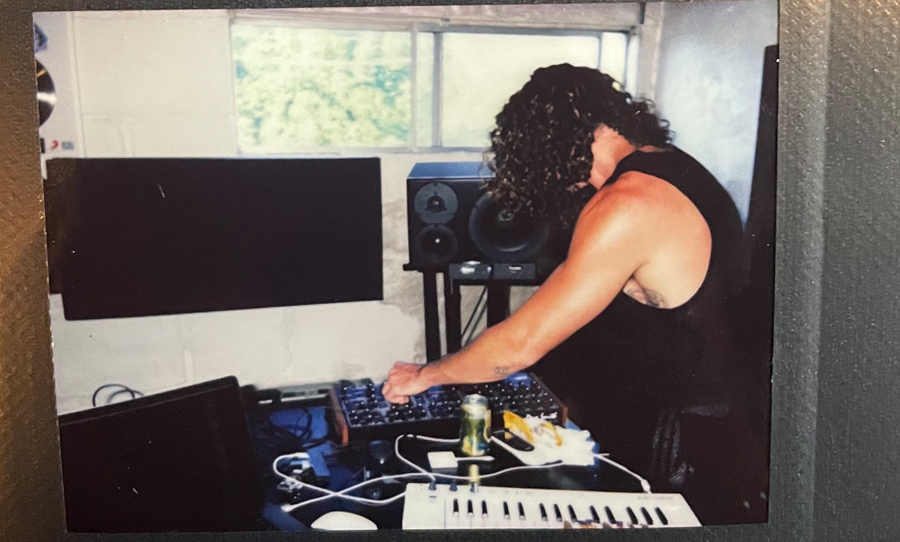
HAPPY: Hey Adam! Can you start by painting us a picture of your studio?
ADAM HYDE: Totally man. I’ve been in this studio for probably 6 months now and it’s become my home away from home, but almost just my home full stop, especially with the COVID lockdowns and everything. I share this studio with Laura, who is also known as KUČKA, who is a legendary artist from Perth originally. We were both living in West Hollywood at the same time. I came to this spot that I’m in right now and she’s like, “are you looking for a spot?“, and I was like, “yeah” and she said, “let’s just split this room. You like to work afternoons, I like mornings.” Two days later, I moved in. It’s an incredible space. It’s wooden. It kind of looks like a sauna.
HAPPY: Absolutely, it’s a ski lodge.
ADAM HYDE: Ski lodge vibes! Yeah. It’s treated acoustically quite well. I’ve got a bunch of analog stuff and it’s a nice spot that I like to get ‘zen’ in and just get freaky in.
HAPPY: Are there any choice pieces that you’re vibing on at the moment?
ADAM HYDE: The [Moog] Slim Phatty is something that I’ve been smashing a lot, but the main thing would be this Prophet Rev 2. I’ve got a bunch of sound banks for that and I’ve just been churning through that lately. But to be honest with you, mainly a lot of the Arturia VST stuff. That and StandardCLIP, you can use it to add odd harmonics to your signal.
HAPPY: Ah, I haven’t heard of that one…
ADAM HYDE: Yeah, you should check it out, man. It just crunches and squashes but in a really nice way. I’ve also been using a lot of Output. They’ve got a plugin called Thermal, their new distortion unit, which is really weird and really good, and also Portal, which is their granular delay, which is sick. You can warp sounds into strange, strange noises with that.
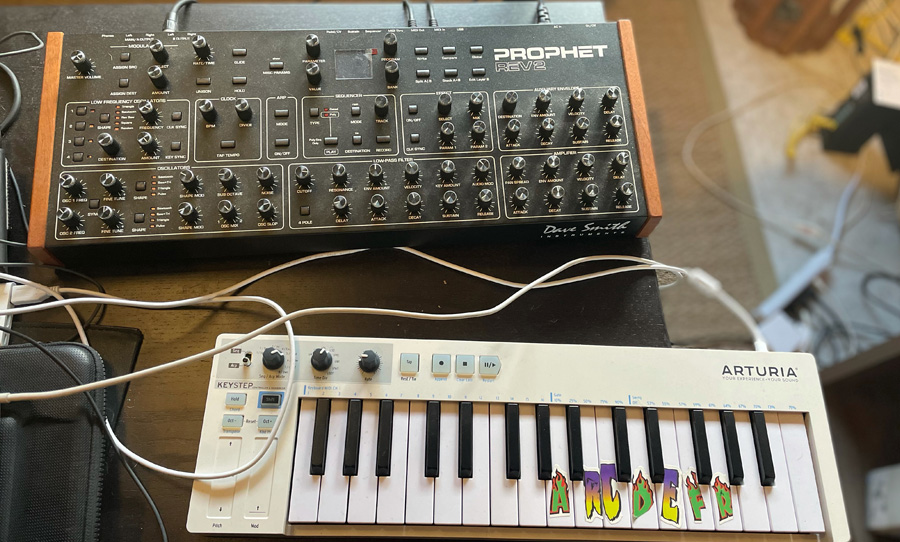
HAPPY: L.A. is obviously the town for studios. Do you have any favourite haunts beside your own spot?
ADAM HYDE: Yeah, I was working out of a place called Melrose Sound, which has a cool crew. Beyond that, I was pretty much just a session slut. I was jumping from studio to studio, literally every day when I first moved here for around three months, which was really fun. Through that, I met so many amazing people, who have become close friends. The time when it felt right to jump into my own space was the time Laura reached out. It was fate, I guess.
HAPPY: Peking Duk are kings of the vocal collab. How do you go about working with a vocalist for the first time?
ADAM HYDE: I guess the best way to collaborate with anyone in any capacity — when you don’t know them — would be to get to know the person. Once you’re comfortable around someone, you tend to be more genuine and authentic. Authenticity is more important than anything. If you’re only left with authenticity, you’re left with something great. So maybe don’t jump straight into the work, maybe just get to know each other.
But sometimes, if they come in and you’re playing a beat and the vibe is there, you can get jump straight in and get to know each other through the creation. This can be a very special thing and it’s happened to me a couple of times since I’ve been out here. We’ve written this song that we’re both in love with — that didn’t even exist four hours earlier — and we don’t even know anything about each other as people. But through that, we learn about each other, so when we come to those conversations about “where did grow up?” and all that, it all makes sense and it feels like you already know them. So it’s funny that music and creation, in general, puts you on a wavelength with someone else.
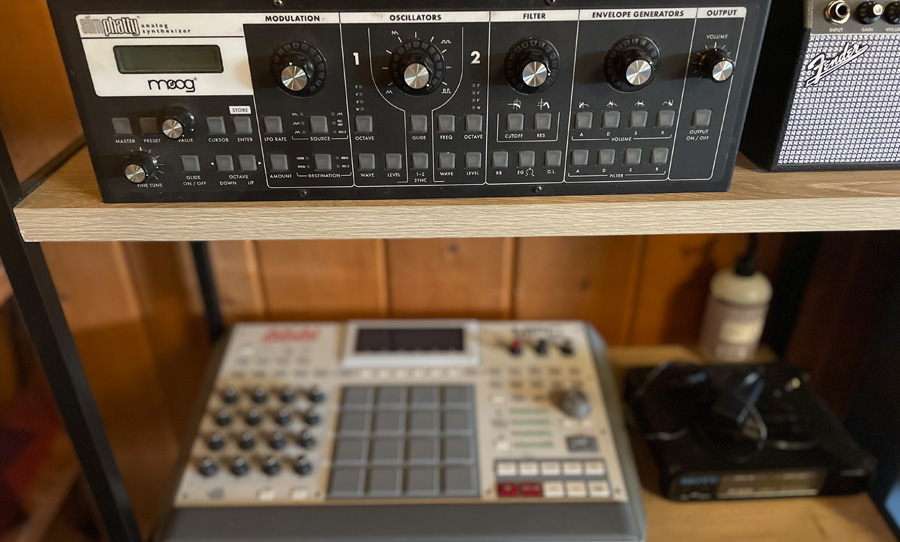
HAPPY: And when you are working out those initial songwriting elements together, are you beginning on the piano and guitar, or from the DAW, or other musical fundamentals like harmony and melody?
ADAM HYDE: It’s always different, to be honest, but I go through phases. I stopped this a couple of months ago, but for about six months, I started everything with chords. And I’m not good with chords at all, but I’ll try and bang them together and get a vibe going. And a lot of the time I used to find myself — I don’t know if ‘worried’ is the right word — but before going to a session I would have to have an idea cooked up on my laptop.
I would literally jump in the Uber around midday every day, going to a different studio, and on the way there — because it’s half an hour to anywhere in L.A. — I would cook up an idea on the way to the session and then play the idea in the session. And out of that came some amazing stuff, but I also think it limited some ideas, because I was like, “hey, I just made this, maybe we should try this“. I was never bossy about it, but it kind of set the precedent for the session, which I think might’ve closed a few windows.
Now I try to approach it from a place that’s as close to freedom as possible. So whoever I’m working with, I’ll ask, “what do you feel like doing? What kind of vibes are you into? What have you been listening to? What would you like to create?” I’ve also found lately that writing around something smaller, rather than something larger creates better quality musical ideas.
So instead of having chords, then breaking those up into a verse section with chords and a chorus, or a drop section with chords, and it’s all kind of arranged, it’s fun to try centring a track around a weird vocal sound, then around that, write a bass line, chords and put drums down. It’s a more abstract way of creating a song then basing it off chords.
HAPPY: And if you’ve got a great hook, it’s memorable straight away.
ADAM HYDE: Yeah. If you can create something that you love around not much at all, it says a lot about the idea you’ve created. Whereas if you’re writing shiny synth chords over glittering percussion, it’s already gonna sound pretty. Lately, I’ve been starting ideas with a less is more approach.
HAPPY: Are you favouring a particular DAW to get those spontaneous ideas cracking straight away?
ADAM HYDE: Reuben [the other half of Peking Duk] and I started on Reason in 2010. I remember that Reuben really got the hang of Reason and I was trying to chip away at it. But I found it hard to sequence out beats, to map it all out and arrange my stuff. I found it very tricky to get to know the interface. I love the soft synths in there though: Thor, Malstrom and it had a distortion unit in there that was sick too! But I was trying to get my ideas down into the session and it just wouldn’t fucking work.
A friend of ours gave us a cracked version of Ableton and I’ll never forget that night he came over. It was really late and we were really stoned and he gave it to me on my laptop. The label that released Nightcall by Kavinsky put the stems to that track online for a remix competition. It was perfect timing. I loaded the stems into Ableton and immediately, I understood the interface. That night, I stayed up until four am and did this remix and added in synths and I was like “oh my god!” Ever since then, I’ve been infatuated with Ableton.
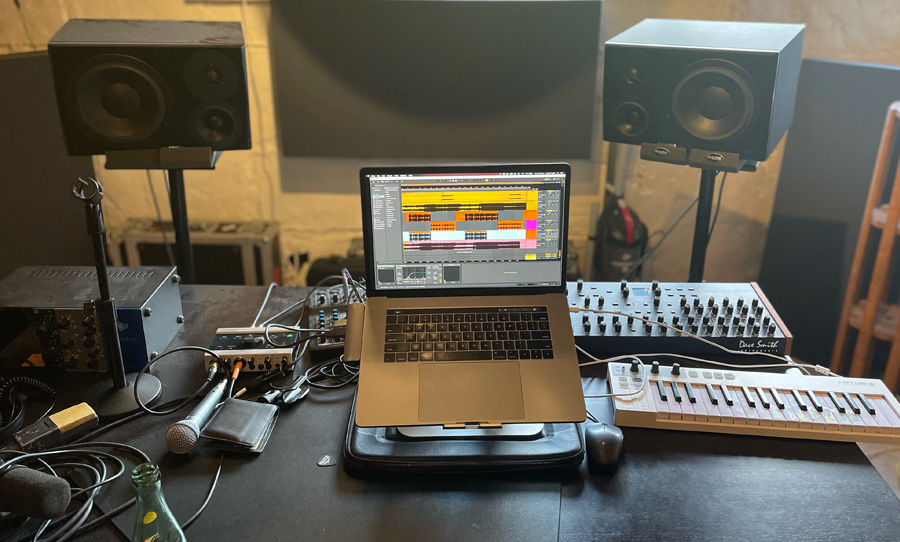
HAPPY: I guess you can interpret Ableton in a traditional way by using the arrangement view, or really chop it up in the session view…
ADAM HYDE: Yeah totally. We use Ableton for our live shows, so they’re keeping us alive!
HAPPY: Let’s talk about your recent track, Nothing to Love About Love, featuring Matt Murphy from The Wombats. How did you begin producing that track?
ADAM HYDE: That was like the ‘Uber beat’ situation. But it was actually in my bedroom, before going to a session with a friend of mine called Tyler Spry, who actually ended up mixing the track and helped with some of the production. I had all these really noisy synth patches and stabs [mimics the bridge melody to Nothing to Love about Love]. I wanted to do something fast — Blinding Lights by The Weeknd was just everywhere at the time. That and Take on Me by A-ha — that is always on the radio in L.A. still, for some reason. Those tracks have the same drum beat, just boppy as. And I was like, “that’d be fun to try something like that“.
So the track started with drums, then I added this wall of sound, euphoric, ’80s sounding synths. And because that was such a big sound for the drop, I wanted to make the verse beat kind of like Kavinsky’s Night Call in fact, with a bass patch I made on the Rev 2 here and punchy Linn Drum and we tracked a lot of [Roland] Juno in Tyler’s studio that day. We had a verse, a pre, a drop and a breakdown. We had a session with Murph teed up for the following week, we sent him the track and he loved it. He came into the studio with a vocal idea and we all worked on it and it came together in a day. It was awesome.
HAPPY: Throughout the life of Peking Duk, you’ve worked with such a wide range of vocalists. How do you go about ensuring every track has your signature sound?
ADAM HYDE: I genuinely feel like we don’t have a sound. I think we do in some ways, but also not…
HAPPY: Maybe it’s not specifically a sound, but it’s an atmosphere, a euphoria. How do you maintain that?
ADAM HYDE: Ever since I wrote High, that was an emotional track that brings out something in your heart. It’s euphoric, but also sad. That makes me feel something, so I try to create something that really makes me feel something each time. So whether it is going down a melancholic avenue, or a straight euphoric avenue, like the Al Wright song [Ur Eyez] or the Jack River song [Sugar], we’re always really trying to bring that feeling home, whether it be with a wall of sound, or slamming shit with over the top compression, or finding drums that really smack, or a drum pattern that’s unique.
But it’s also a feeling we get when we’re writing songs about what would translate best when we’re doing a Peking Duk show, what works within the Peking Duk world. At the end of the day, Peking Duk is a collaborative project, it always has been. It’s about having fun and just enjoying making it and playing it. If we’re not having fun when we’re doing it, then that’s a big no-no, but it also has to fit into our world. That’s why we’ve written over a thousand songs that haven’t come out, which is fine, it’s all part of it.
HAPPY: Your catalogue reflects the energy of the crowd, so how do you bring that to the stage?
ADAM HYDE: It kind of happened the opposite way for us. We were making thrashy, electro stuff. And then I made a song called The Way You Are which had more of a guitar influence, then made High. We were in the States when we dropped that track and then when we got back to Australia, it was the first time we had a line up outside the venue for one of our shows. Then we played High, and thought, “this really feels like something” and inspired us to keep going down that avenue. We followed it up with Take Me Over and Stranger and all those songs are sonically very similar.
And if you’ve been to one of our shows, that’s the feeling — everyone’s jumping up and down, sweating, some people are crying, some people are just smiling ear to ear. It feels like letting go and really embracing whatever that energy might be, it’s primal. Happiness, sadness, you just wanna sweat, you just wanna get crazy, that’s something we always wanted to push at our shows. It kind of came to us, we didn’t come to it.
HAPPY: You’ve funnelled the energy of your shows into your records, which is pretty magical…
ADAM HYDE: Yeah, it’s pure magic! We’re so happy that it’s happened like that. I’ve never thought about it that way until now, but it’s fucking incredible.

